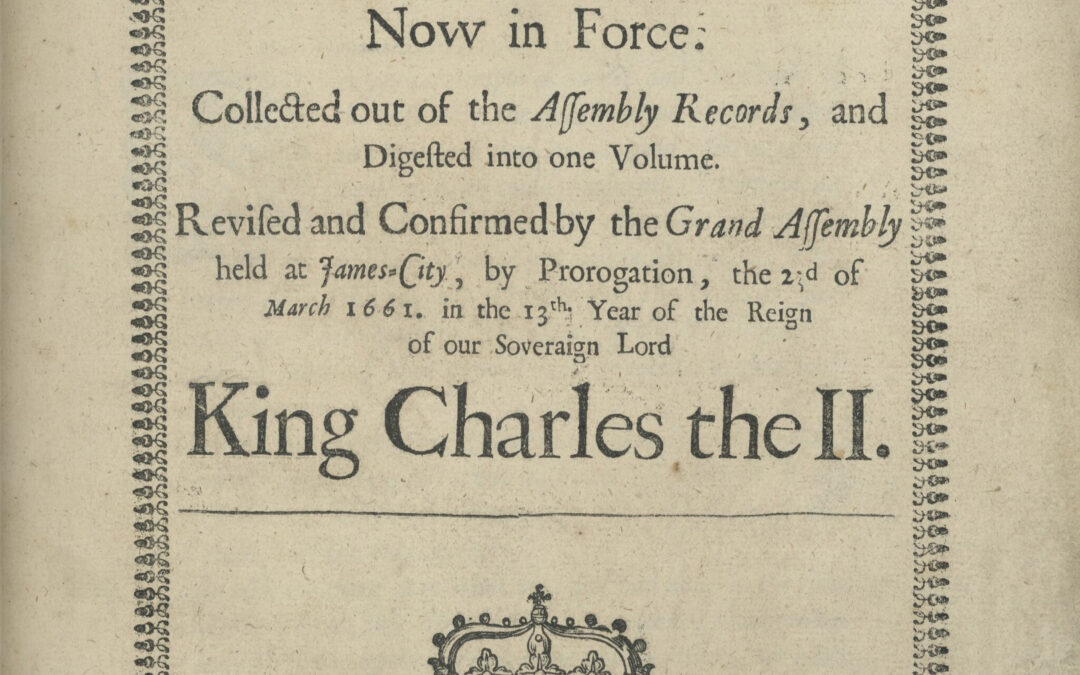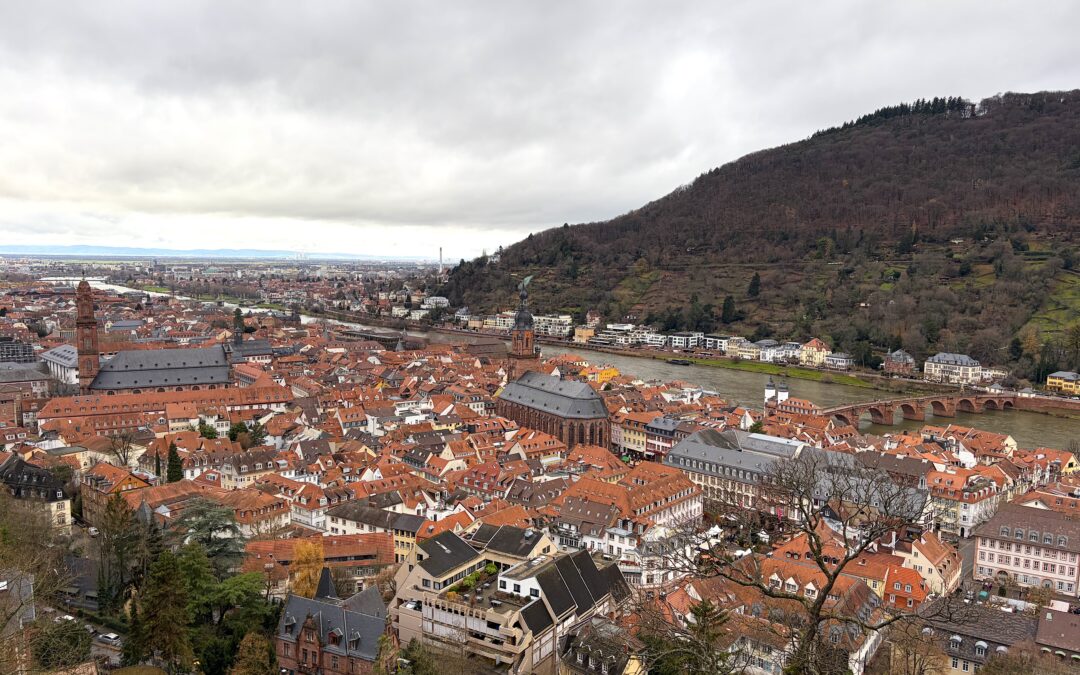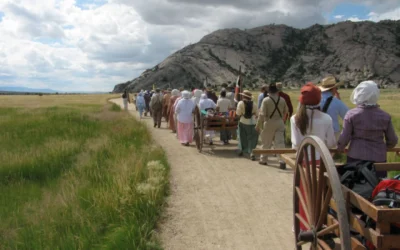Heirlooms with Heart: The Power of Klediments
When June Carter Cash published her book Among My Klediments, she introduced the world to the concept of cherished objects that hold deep personal and familial significance. The word “klediment” may not be common, but its meaning resonates with those of us who hold onto treasured items infused with stories and memories. As a family historian, I find myself surrounded by klediments in my home that remind me of the ancestors whose lives they symbolize.
What Exactly Are Klediments?
Klediments are physical reminders of our past—objects that have become sacred through generations of meaning. These aren’t just heirlooms or keepsakes; they’re tangible pieces of family history that tell stories of resilience, creativity, and connection. For June Carter Cash, klediments might have included a beloved guitar or keepsakes that reminded her of a rich, music-filled upbringing. For me, klediments come in a variety of forms.
In my family, one grandmother was a landscape artist, one grandmother was a card player, one grandfather was a storyteller, and one grandfather was a furniture maker. So aesthetics, storytelling, and chance are core values that run in my family—values I hold close to my heart. The klediments I treasure reflect these values and keep my ancestors’ lives vividly present.
Three Personal Examples
The Queen of the Night
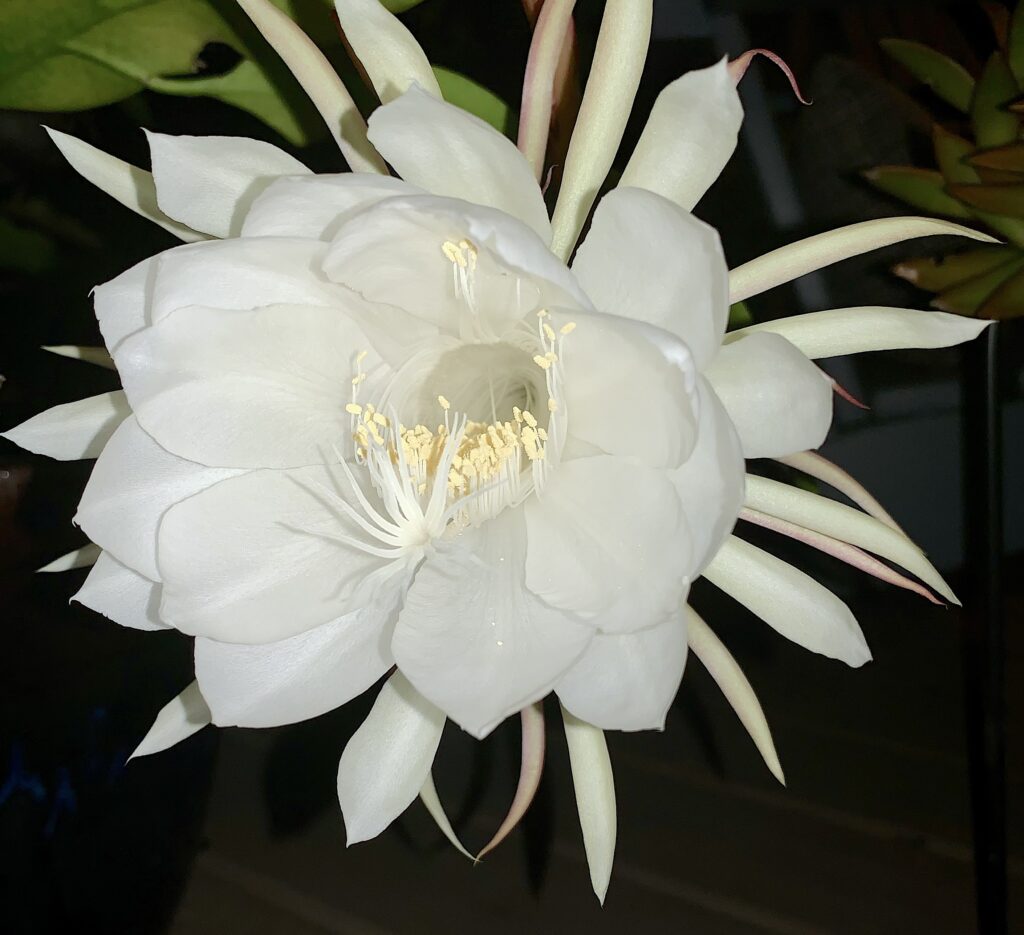
The Queen of the Night blooms just once a year at midnight. It’s been passed down in the author’s family for five generations.
One of my most treasured klediments is a thriving Queen of the Night houseplant, passed down through five generations on my mother’s maternal side. This plant is more than just greenery; it’s a living connection to the women who’ve nurtured it, ensuring its survival through changing times. Each time I water it, and especially when it blooms around midnight once a year, I’m reminded of the hands that came before mine—including those of women I never met—tending to it with the same love and care.
Handcrafted Chest of Drawers
Another meaningful klediment is a chest of drawers crafted by my grandfather, a skilled furniture maker. Despite being disabled and having only one good hand, my maternal grandfather was an extraordinarily talented craftsman. He poured his heart into every joint and curve of the wood. Today, the chest stands proudly in my home—not merely as a piece of furniture but as a testament to his craftsmanship. It’s not just functional; it holds the stories of his dedication, the pride he took in his work, and the artistry he infused into every piece he made despite his disability.
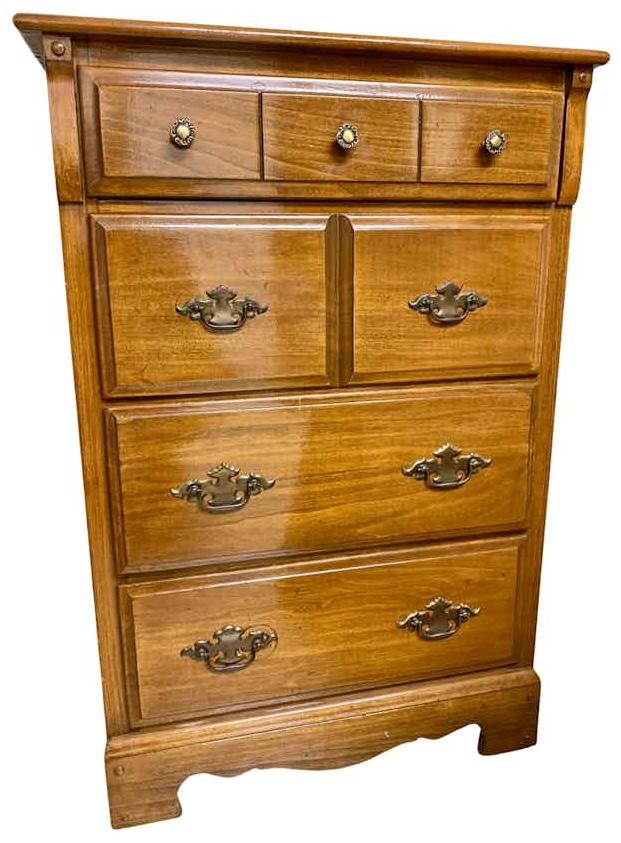
The chest of drawers crafted by the grandfather of the author
Kentucky Landscape Paintings
My grandmother, the artist, left behind many beautiful paintings, including a few that grace the walls of my home. Most of her works depict nostalgic places and locations rendered from her memory, capturing the Kentucky rolling hills she loved. Her brushstrokes bring to life the landscapes she held dear, and through her paintings, I can glimpse the world as she saw it. These klediments remind me of her passion for beauty, her connection to the past, and the sense of peace she infused into her art.
Telling the Stories
Documenting the story behind a klediment transforms it from an object into a legacy. I start with the basics: what the item is, who owned it, and when and where it came from. Then, I delve deeper into its significance, weaving in personal reflections and the core values it embodies.
For example, when I think of the five-generation plant, I’m reminded of the resilience and care it symbolizes. I remember the stories my grandmother shared about her grandmother tending to it by the window—her cherished retreat when she wasn’t at the card table. Known for her sharp mind and strategic play, she nurtured the plant with the same cunning determination she brought to each game. The chest of drawers evokes a different legacy: my grandfather, working with only one good hand, focused and methodical in his workshop, transforming raw wood into something lasting. These reflections turn objects into rich, living narratives—each one a testament to the people who shaped them and the values that continue to grow through their stories.
Planning for the Future
Preserving klediments for future generations goes beyond documenting their stories; it’s also about ensuring these treasured items have a home when I’m no longer here. I’ve started identifying family members who share an interest in our history or understand the value of these heirlooms. When I tell the story of a klediment, I pay attention to who resonates most. It might be a niece or a cousin, someone whose eyes light up with genuine curiosity.
I’ve come to realize that by not taking steps to ensure the intentional transfer of my family klediments, I’m making a choice—whether I acknowledge it or not. Either I care enough to guide their future, or I leave that future to chance. If I neglect to plan, these cherished objects could end up in estate sales or auctions, stripped of their meaning and history. It’s my responsibility to decide: do I want these stories to live on, or am I comfortable letting strangers assign a price tag to my family’s legacy? Taking action means I’m passing down not just objects, but the values, connections, and resilience they represent.
I make a point of discussing my wishes with these family members. I share the significance of each klediment, explaining the care it needs and the stories it holds. Sometimes, I pass it on while I’m still living, ensuring it’s entrusted to the right person and offering guidance in preserving it. This isn’t just about transferring ownership; it’s about sharing the essence of our family’s history and legacy, allowing them to experience the connection while I’m still here to tell its story.
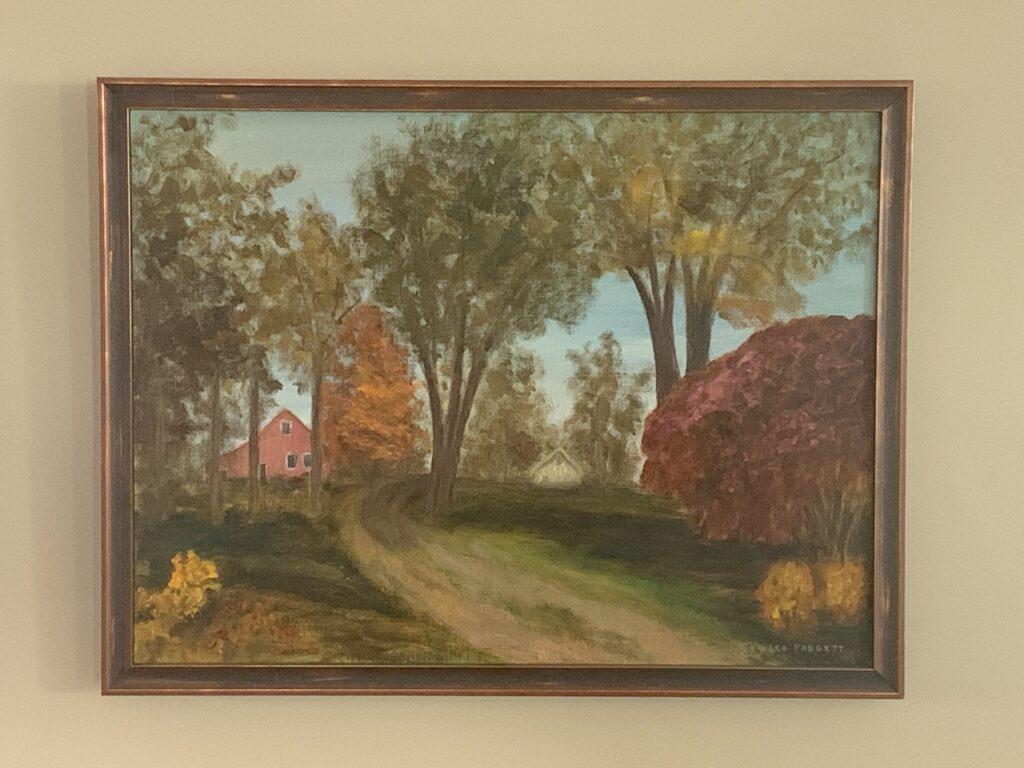
A painting rendered by the author’s grandmother, a self taught artist, of her mother-in-law’s childhood home on Blueball hill near Rineyville, Kentucky
The Risk of Untold Stories
Without intentional transfer, a klediment’s story can vanish, leaving a once-cherished heirloom adrift in estate sales or auctions, stripped of its meaning. I shudder at the thought of my grandfather’s chest or the five-generation plant ending up in a stranger’s home, their rich histories reduced to price tags. The values, resilience, and connections they symbolize could be lost. Preserving a klediment’s story is a responsibility, a safeguard against letting my family’s legacy become just another forgotten artifact.
I’ve found one of the most effective ways to preserve and share my klediment images and stories is to post them online. FamilySearch.org’s Memories feature offers a free, accessible platform for this.
Creating a Free Account on FamilySearch.org
If you don’t already have an account, I recommend setting one up. It’s simple to do and ensures your family’s history can be shared and preserved without cost.
Uploading Photographs of Klediments
I make sure to upload high-resolution images of my klediments—like my grandmother’s paintings or my grandfather’s chest of drawers—to capture their intricate details and essence.
Writing Detailed Stories
When I share these images, I always include personal anecdotes and reflections. For example, when I write about the five-generation plant, I describe the care it’s received from each generation. I want future family members to understand its journey and the legacy it represents.
Connecting to Ancestor Profiles
I link these photographs and stories to the profiles of my ancestors in the FamilySearch family tree. This creates a more complete picture of my heritage, allowing future generations to connect with not just names but the values and stories that these klediments embody.
Carrying the Past Forward
Klediments are abundant in my home, reminding me daily of the lives my ancestors led and the values they held. Whether it’s the hands that painted, crafted, or nurtured, these objects are my inheritance, and they tell stories of aesthetics, story, and chance. By preserving and sharing klediments, I ensure that the essence of my ancestors lives on, enriching my own life and those of generations to come.

